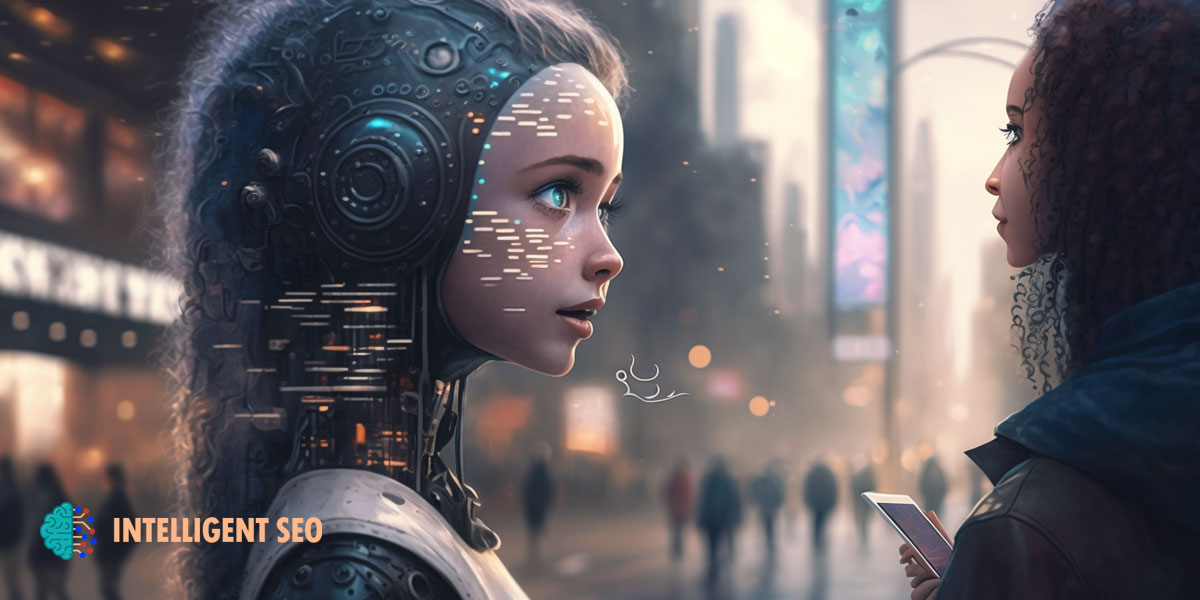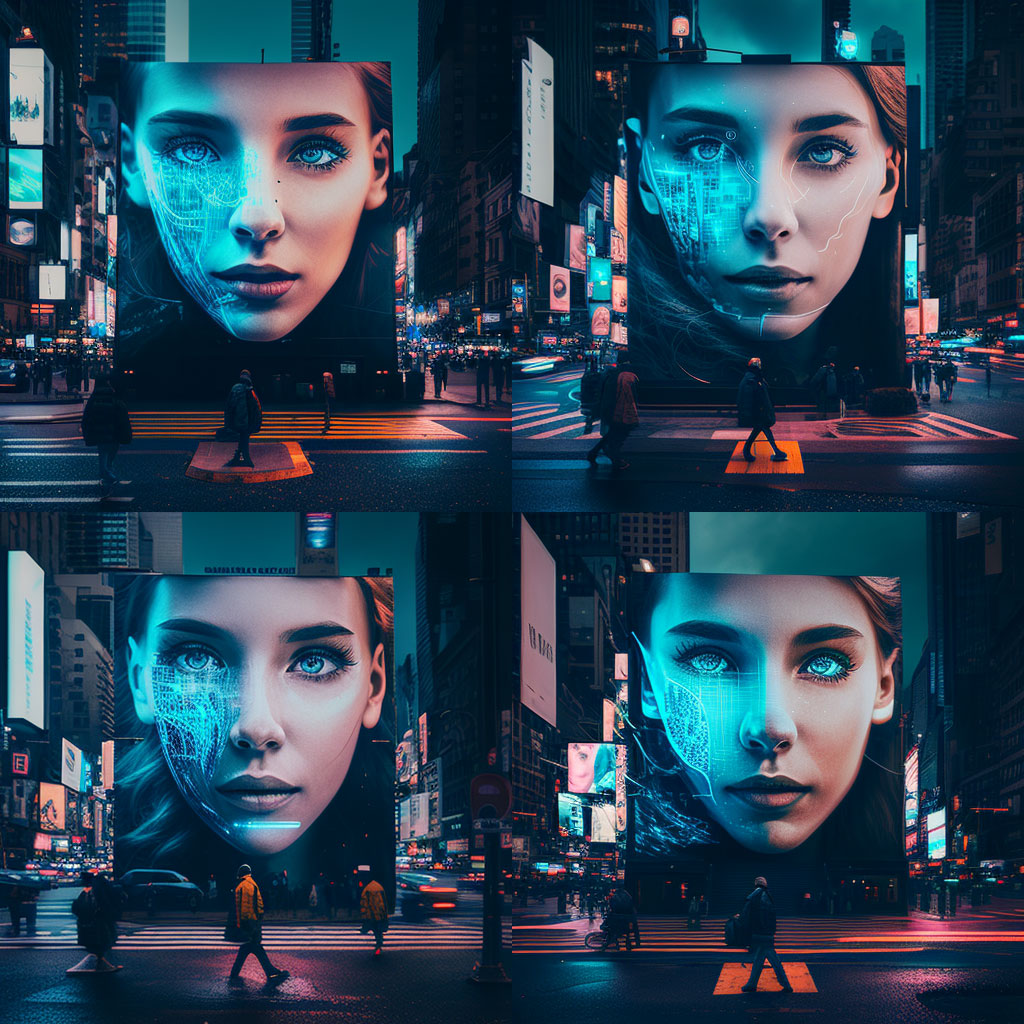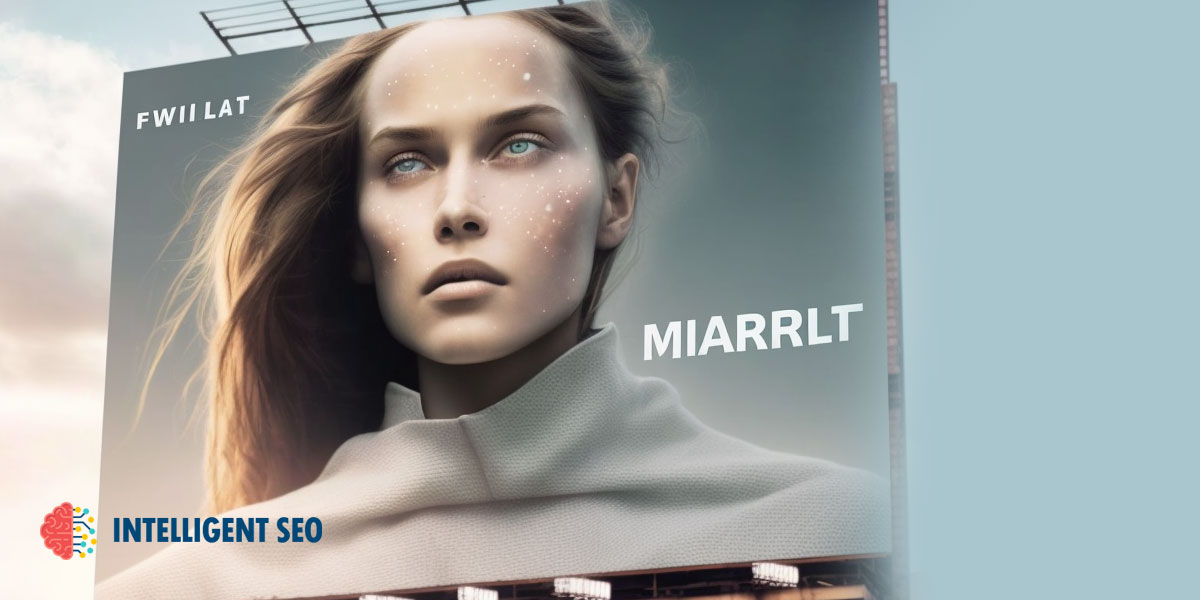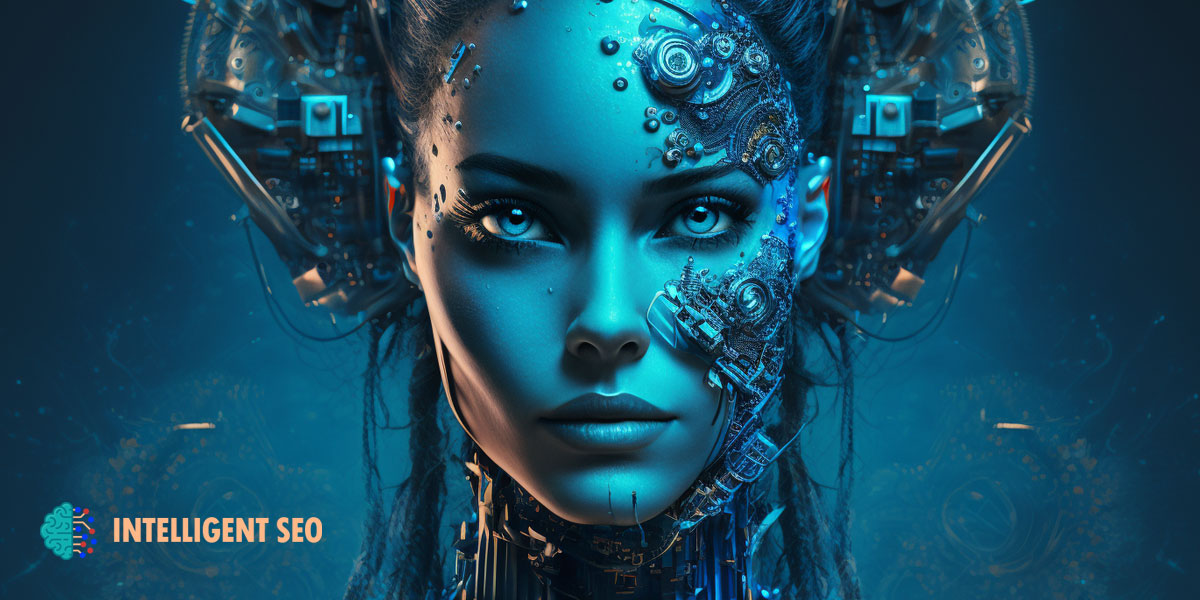AI Marketing
How To Use AI For Digital Marketing
AI marketing tools are taking over the digital content scene. If you know how to use the fantastic software available today on the web, you can save thousands of hours of time and money. What used to take 3d artists and render studio’s days of work can now be digitally painted in under a minute with a simple description. AI is here to stay, if you want to put your company ahead of the marketing game, it’s time to invest your knowledge and keep up with the new digital space of the future.
What Is AI?
Artificial Intelligence (AI) refers to the field of computer science focused on creating intelligent machines that can perform tasks that typically require human intelligence, such as visual perception, speech recognition, decision-making, and natural language understanding.
AI algorithms use various techniques such as machine learning, neural networks, deep learning, and natural language processing to learn from data and make predictions or decisions based on that data. AI applications are in various industries, including healthcare, finance, transportation, and entertainment.
AI is rapidly advancing and has the potential to revolutionise many aspects of our lives, including the way we work, learn, and interact with technology.
How Can We Use AI For Marketing?
AI can be used in marketing in several ways to improve efficiency, personalisation, and overall effectiveness. Here are some examples:
- AI algorithms can analyse customer data and predict future behaviours, such as purchase intent, likelihood to churn, or preferred products. This can help marketers to target their efforts more effectively and personalise their messages to each customer.
- Chatbots are AI-powered digital assistants that can interact with customers and provide them with personalised recommendations, support, or product information. This can improve customer engagement and satisfaction and reduce the workload on customer service teams.
- AI algorithms can analyse large amounts of data to identify patterns and optimise content for different channels and audiences. This can improve the relevance and effectiveness of marketing messages and increase engagement and conversion rates.
- AI-powered recommendation engines can suggest relevant products or services based on a customer’s previous purchases or browsing history. This can increase sales and customer loyalty by providing a personalised and convenient shopping experience.
- AI algorithms can be trained to recognise specific objects, faces, or emotions in images and videos. This can create more engaging and personalised content and improve ad targeting and performance.
Overall, AI can help marketers better understand and engage with their customers, optimise their content and campaigns, and improve the ROI of their marketing efforts.

How Does AI Produce Imagery?
AI can produce artistry imagery through “generative art” or “neural style transfer”. This involves using deep learning algorithms, such as neural networks, to analyse and mimic the style and content of existing images and then generate new images that combine elements of both.
Generative art algorithms work by training a neural network on a large dataset of images, which it uses to learn patterns and features of different artistic styles. Once the network has learned these patterns, it can apply them to new images to create a unique, artistic output.
One popular application of this technique is called “neural style transfer,” which involves combining the content of one image with the style of another image. For example, a neural network can be trained to recognise the content of a landscape photograph and then apply the brush strokes and colour palette of a famous artist, such as Vincent Van Gogh, to create a new image that blends both styles.
AI can also generate artistry imagery through other techniques, such as generative adversarial networks (GANs) and variational autoencoders (VAEs), which can create entirely new images based on random noise inputs or a combination of existing images.
Overall, AI can produce artistry imagery through a combination of deep learning algorithms and image processing techniques, allowing for the creation of unique and visually stunning works of art.

Here are 6 of the best image generating AI apps:
- Deep Dream Generator: Uses a deep learning algorithm to generate unique and surreal images from photos. Users can upload their own photos or use the app’s built-in library
- Runway ML: Allows users to experiment with different AI models and generate images, videos, and even music. It’s popular among artists, designers, and creative professionals
- Artbreeder: Manipulates AI to generate original artwork by combining different styles, genres, and elements. Users can create their own unique images or browse the app’s library of pre-made art
- DALL-E: Developed by OpenAI, employes a language model to generate images based on written prompts. Users can type in a description of the image they want, and DALL-E will create it
- NVIDIA GauGAN: Utilises AI to turn rough sketches into photorealistic images. Users can draw simple shapes and lines, and the app will generate a fully rendered image based on their input
- Discord: Built around a chat forum which uses AI to generate any desired image using chat commands and descriptions by the user.

How To Use Images For Digital Marketing
Using images effectively in digital marketing can help increase engagement, attract more attention to your brand, and improve the overall effectiveness of your marketing efforts. Here are some tips for using images in digital marketing:
- High-quality images make your brand look more professional and trustworthy. Make sure to use high-resolution images that are clear and visually appealing.
- Use relevant images for your product or service that help convey the message you want to communicate to your audience. The images should be visually appealing and help your audience better understand the value proposition of your offering.
- Different social media platforms have different image sizes and aspect ratio requirements, so optimise your images to ensure they look good on all platforms.
- Large blocks of text can be overwhelming and turn off your audience. Use images and other visuals to break up your text and make your content more visually appealing.
- Use images that tell a story about your brand or product rather than just promoting features or benefits. This can create an emotional connection with your audience and improve engagement.
- Test different images and track their performance to see which images resonate most with your audience. Use this data to optimise your future image use for maximum effectiveness.
Moreover, using images effectively in digital marketing requires careful planning and execution. You can create a more engaging and effective digital marketing strategy by using high-quality, relevant images, optimising for different platforms, and telling a story with your visuals.

What The Future Holds For Digital Marketing
The future of AI in digital marketing is exciting and holds enormous potential. As AI continues to evolve and become more sophisticated, marketers can personalise their campaigns unprecedentedly, delivering highly targeted and relevant messages to their audiences.
Additionally, AI-powered automation will become increasingly prevalent, allowing marketers to focus on more strategic initiatives while delegating time-consuming tasks to machines. AI’s ability to analyse vast amounts of data and predict future trends will help marketers make more informed decisions and optimise their campaigns for maximum effectiveness.
Furthermore, AI-powered chatbots and virtual assistants will provide 24/7 customer support, improving customer satisfaction and reducing the workload for marketers. Overall, the future of AI in digital marketing is one of increased efficiency, accuracy, and effectiveness, and those who embrace it stand to gain a significant advantage over their competition.
Hi, I’m Dave. I’ve been building websites and helping businesses grow online for over 20 years. If you think we can work together, get in touch today and say hello.


Pingback: Using AI For Packaging Concepts - Intelligent SEO
Pingback: How To Use ChatGPT For Digital Marketing - Intelligent SEO
Pingback: Will The Metaverse Change The Landscape Of Digital Marketing?
Pingback: How Are Big Companies Using AI To Market Their Products?
Pingback: What Does The Future Hold For AI? - Intelligent SEO
Pingback: How To Make It As A Freelance Digital Marketer - Intelligent SEO